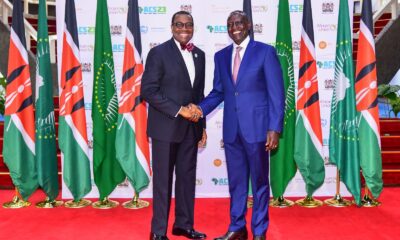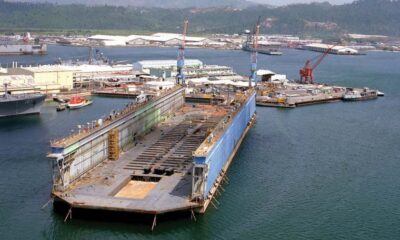- Africa’s Retail Banking Revenue to Hit US$53 Billion by 2022
Africa’s retail banking revenue has been estimated to grow to US$ 53billion (about N19.08trillion) by 2022. The figure represents 41 per cent of the total banking revenue in the region in the next four years.
According to 2018 African banking report recently released by McKinsey, the expected growth in revenue will come from South Africa, Egypt, Nigeria, Morocco, Ghana and Kenya.
McKinsey, in its report, noted that Africa’s banking markets are among the most exciting in the world as the continent’s overall banking is the second fastest-growing and second most profitable of any global region, and a hotbed of innovation.
“Africa’s banking revenue pools to grow at 8.5 percent a year between 2017and 2022, bringing the continent’s total banking revenue to US$129billion”, McKinsey said.
McKinsey added: “Africa’s retail banking markets are ripe with potential and present huge opportunities for innovation and growth”.
However, Nigeria, the most populous nation in Africa, has a herculean task before it to speedily expand its retail banking market as report showed that is lagging behind. According to available information, financial institutions in Nigeria provide less than 10 percent of its credit facilities to consumers and MSMEs compared to other emerging economies.
Indonesia provides 18 percent of its banking sector credit facilities to consumers and MSMEs while Brazil has grown to 33 per cent and South Africa far ahead of them all at 45 per cent.
Managing Director/Chief Executive Officer, CRC Credit Bureau Limited, Mr. Tunde Popoola, gave the assurance that Nigeria would soon take its place in the comity nations as regards consumer lending.
He made this known on the occasion of the CRC-2018 Industry Forum held in Lagos on Thursday. His words: “Following the enactment of the Credit Reporting Act, 2017 and our launch of a global scoring platform, it is expected that the value of consumer loan would grow exponentially.”
Popoola disclosed that CRC Credit Bureau was positioned to help banks and other institutions successfully manage their retail lending business on a scale that enables exponential financial growth. “From just over one thousand customer base in 2009, repository records show that it has grown to about 17million in Nigeria”. He mentioned that the targets of CRC were millions of Nigerian consumers and tremendous untapped opportunity to grow asset size and profits
“Our goal is to grow bank assets and profitability in a healthy way, prevent systemic risk by diversifying loan portfolio and grow Nigeria’s GDP”, he added.
In addition, the World Bank has projected that, by the year 2020, one billion adults currently excluded from traditional financial systems will gain access to some form of banking services.
The bank, however, noted that the future of retail lending was in embracing financial technology for financial inclusion. “Today and tomorrow belong to those who are able to play in retail banking. The drivers of any sustainable retail lending business model include digitisation and data-driven decisions” the World Bank said.
Meanwhile, the International Finance Corporation (IFC), the financing arm of the World Bank, also in a separate report disclosed that credit bureaus (in emerging markets) had the capacity of expanding credit financing by $1,256billion, touching 613million more people and reducing transaction cost by about 30-40 percent.
According to IFC, credit bureaus play an important role helping consumers and small businesses obtain financing.
“The credit information on individuals or small business borrowers they provide to lenders helps remove uncertainty that has traditionally been associated with lending. Accurate and timely credit information also allows financial institutions reduce risks, loan processing times, costs, and default rates,” IFC said.
IFC added: “For borrowers, detailed credit information and a modern credit reporting system often lead to lower interest rates, making loans more affordable and more available. Credit bureaus also support responsible lending practices, and help borrowers avoid over-indebtedness. These benefits all combine to support broad economic growth”.
Advanced credit reporting systems make a major contribution to increasing access to finance, which is fundamental to the growth of small and medium enterprises (SMEs). A lack of access to finance is often cited as one of the major obstacles hindering economic growth in sub Saharan Africa.
On how IFC is supporting the growth of credit bureaus, it disclosed that the IFC’s Africa Credit Bureau Programme is providing advisory services to central banks, national bankers associations, and other private sector stakeholders. Meanwhile, IFC’s specific interventions in credit reporting include, but are not limited to advisory support to help develop and implement credit information sharing systems (private credit bureaus, public credit registries or mixed credit credit-reporting models), with an emphasis on microfinance institutions and small and medium enterprise credit reporting; advisory support to governments to develop the appropriate legal and/ or regulatory framework for credit information sharing (at times in collaboration with the World Bank); public and private sector education campaigns on the benefits of credit information sharing and support for the development of value-added services in markets with more mature credit information sharing systems.

 Naira3 weeks ago
Naira3 weeks ago
 News4 weeks ago
News4 weeks ago
 Naira4 weeks ago
Naira4 weeks ago
 Jobs3 weeks ago
Jobs3 weeks ago
 Naira3 weeks ago
Naira3 weeks ago
 Travel3 weeks ago
Travel3 weeks ago
 Naira3 weeks ago
Naira3 weeks ago
 Investment4 weeks ago
Investment4 weeks ago


























